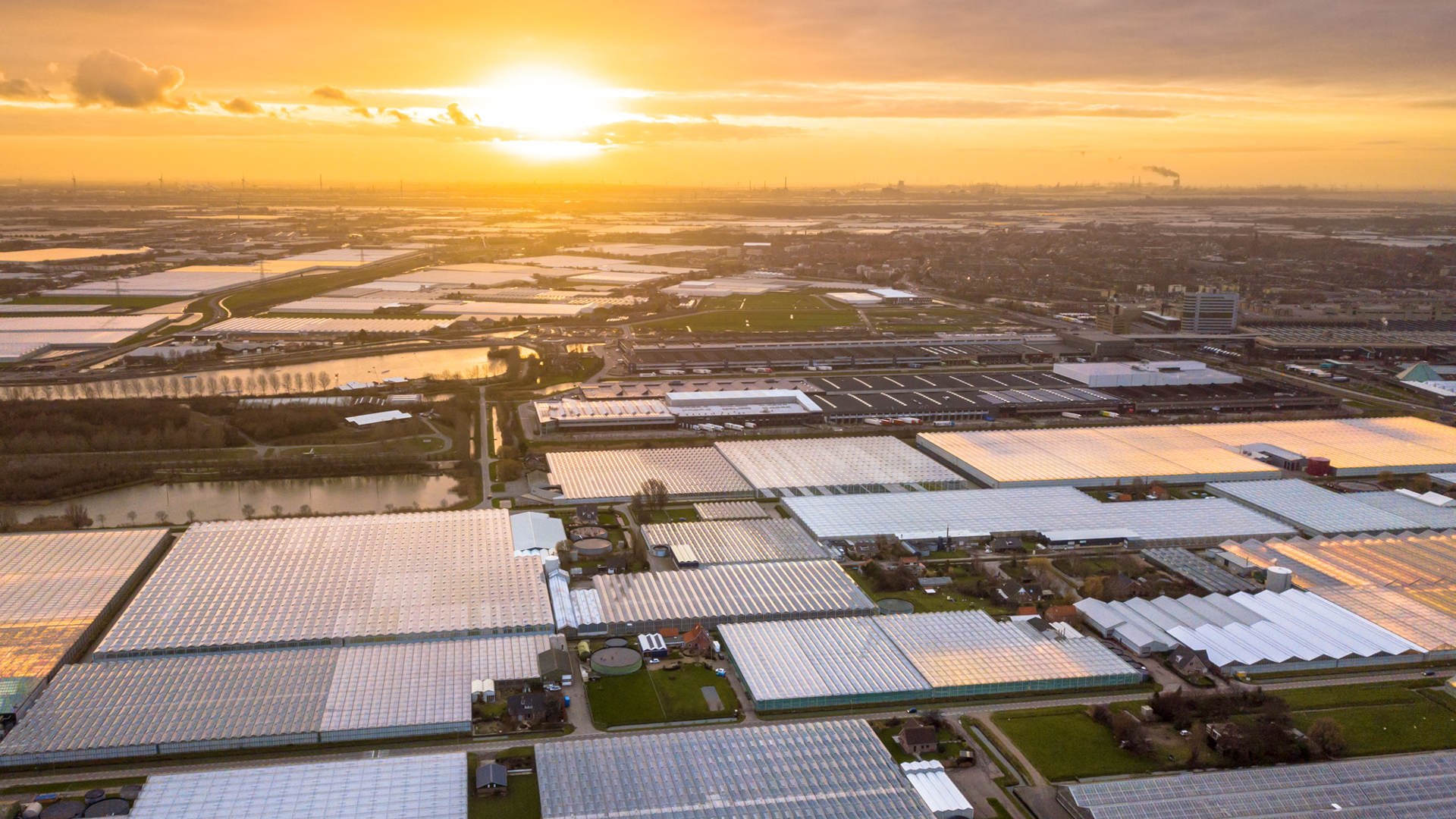
In addition to his role as senior manager agro at Achmea, Breugem has been busy this summer preparing for the international congress, which will take place on September 22, 23, and 24 in Rotterdam. “We want to showcase the Dutch agricultural sector and our insurers in the best possible way.”
10 billion
The Dutch agricultural sector is the number 2 exporter of agricultural products worldwide," he explains. "Pretty special for such a small country, isn't it?" According to him, this is partly due to the favorable location, strong knowledge institutes such as Wageningen University, a supporting government and a business community that works well together. That focus on collaboration is also evident amongst agricultural insurers. “Despite being competitors, we understand the power of working together to ensure the continuity of food producers. And that’s incredibly important when you consider that the world population is heading toward 10 billion.”
Increasing risks
Insurers contribute to this continuity by taking on risks that farmers, arable farmers and horticulturists cannot bear alone. These risks are increasing due to more extreme weather. Such as longer periods of drought and heavier rainfall over shorter periods of time. To prevent crop damage and keep claims manageable, agricultural insurers actively share their expertise. According to Breugem, this biennial congress is the perfect moment for that.
Sharing knowledge to the max
The theme in 2025 is Climate volatility and food security: political goals and agricultural reality. Breugem: "We'll discuss the role of the government in maintaining food production. Some take the lead, others are more hesitant. What we see worldwide, however, is the growing involvement of governments in securing food production. Often through insurers, in the form of subsidies to agricultural businesses for insurance premiums. In the Netherlands this is the Brede weersverzekering for farmers with open-field crops."
 The conference will also cover mitigation, adaptation and damage prevention. Participants will explore how to adapt insurance products to new circumstances in order to keep the insurability as high as possible. Examples include new types of insurance, such as index insurance. Or innovations with drones and satelite imagery. Breugem: "It's about sharing information as much as possible to learn from each other."
The conference will also cover mitigation, adaptation and damage prevention. Participants will explore how to adapt insurance products to new circumstances in order to keep the insurability as high as possible. Examples include new types of insurance, such as index insurance. Or innovations with drones and satelite imagery. Breugem: "It's about sharing information as much as possible to learn from each other."
"At the same time, it is the place to be for leaders and decision-makers to meet," he emphasises. "On the evening before the opening, there are already many mutual sessions. And active networking continues throughout the event."
Ambition
Breugem is looking forward to it and feels excited. "We want to show what collaboration can achieve. On Monday morning, we’ll have presentations from the Ministry of Agriculture, Nature and Food Quality and from the Delta Commissioner, as well as contributions from entrepreneurs Annelies Looije (Looye Kwekers), Jacob van den Borne (Van den Borne Potatoes), and Ruud Zanders (Kipster)."
He is also excited about the excursion to the World Horti Center, the innovation hub for the international greenhouse horticulture sector, where participants will gain insight into the latest trends and innovations in crop insurance. "I dare to say that Dutch greenhouse horticulture is a frontrunner in sustainability. For example, hardly any crop protection products and water are used. And there are already companies operating without fossil fuels. That can be incredibly instructive for foreign insurers."
About AIAG
The International Association of Agricultural Production Insurers (AIAG) promotes cooperation and knowledge-sharing among global stakeholders in agricultural insurance. With 114 members from 33 countries across five continents, the annual AIAG Loss Adjusters’ Seminar and the biennial AIAG Congress have grown steadily, solidifying their reputation as premier networking events for the sector. AIAG brings together the world’s leading insurers and reinsurers in agriculture. It offers a unique platform for dialogue on global trends and challenges in the agricultural insurance sector.